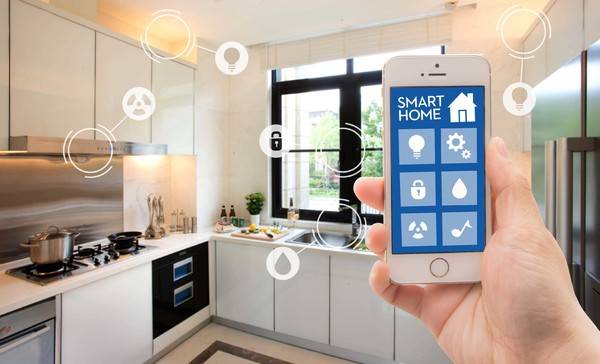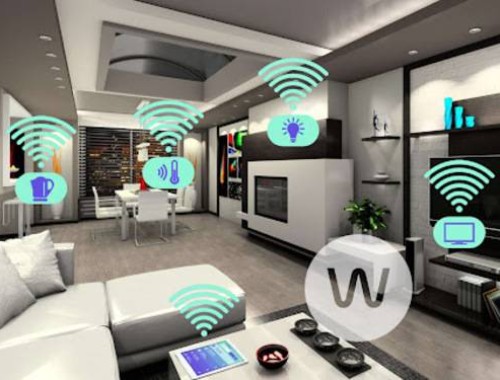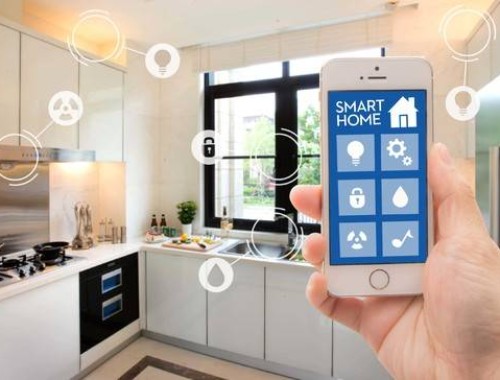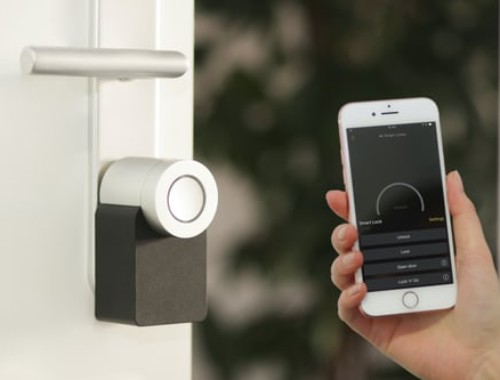How to establish an orderly smart home market?
Source:SECURITIES DAILY
At present, the domestic smart home can only be said to be the initial stage, whether it is the unification of industry standards, technical level and system integration capabilities, all need to be improved.
With the tightening of the external environment, funds have gradually calmed down in a round of craze. Investment institutions have gradually shifted from the previously popular education and Internet industries to the manufacturing industry, and smart homes have become an important track.
At present, what kind of market environment and policy outlets are facing the smart home that has been developed for several years? How does its industry chain move towards orderly competition? Will the industry "involution" be formed as the capital enters in groups?
Capital shifts to smart home manufacturing
Smart home usually refers to the realization of the intelligence of the whole house, using the house as a platform to integrate network communication, automatic control, Internet of Things, cloud computing and artificial intelligence and other technologies with home equipment, covering smart home appliances, smart light perception, and intelligence Home entertainment, smart security, smart connection control, smart home energy management and other subdivision directions.
At present, with the tightening of supervision, investment institutions have turned their attention from education and Internet industries to manufacturing. For a while, smart homes have been sought after. In addition to Gree, Huawei, Haier Smart Home, and VIOMI Technology, there are also cross-industry entries such as Xiaomi, Ali, Orvibo, Aqura, Gome, and Baidu in fierce competition.
Gome has positioned the smart home improvement market as its core strategy. Recently, Baidu has also implemented a strategic investment in smart home improvement. With the release of Huawei' s Harmony operating system, the already lively smart home market is showing a red sea situation.

"At present, the scale of our country' s general home furnishing industry has reached about 4 trillion yuan, and the intelligent transformation of the home furnishing industry is a major trend. Therefore, the development of the smart home industry has a huge market space." said Hu Qimu, a senior researcher at the China Steel Economic Research Institute.
At the same time, with the development of 5G infrastructure, consumer groups are more intelligent. The continuous upgrading of network transmission technology, especially the commercialization of 5G and the rollout of new infrastructure, also provides a better hardware environment for the development of smart homes.
In recent years, China has successively issued a number of favorable policies for the smart home industry to support the development of the upstream industry chain, promote the coordinated development of the industry and emerging industries such as network communications, Internet of Things, artificial intelligence, human-computer interaction, and further promote the use of smart products in smart homes. Integrated applications in other fields provide strong support for the development of China' s smart home industry.
The scale may reach 800 billion yuan in 2025
At present, smart home appliances have developed into the largest market segment in smart homes. According to China’ s smart home development white paper survey, in recent years, the most sub-sectors used by Chinese smart home consumers are smart home appliances, accounting for 21%, followed by smart locks, which account for 19%, and smart speakers, which account for 18% and smart panels which account for 15%.
From the perspective of smart home-related companies, there are many small and medium-sized enterprises and sufficient marketization. In the past three years, a number of home appliance and intelligent system-related companies have continuously emerged in China, such as Huawei, Haier Smart Home, VIOMI Technology, Gree, and Changhong, with outstanding main businesses and relatively stable performance.
In addition to the development of whole-house smart hardware, these smart home appliance companies also focus on the layout of a family ecology that integrates software, services, and experience. VIOMI Technology, which represents the new generation of home appliance brands, cooperates with platforms such as Douyin, iQiyi, Kugou Music, etc., to increase the intelligence of the whole house and broaden the ecological boundary. Chen Xiaoping, founder and CEO of VIOMI Technology, said that whole-house intelligence will become the main method for the transformation of the trillion-level home appliance industry. VIOMI' s more than 2,000 offline scene experience stores across the country will provide whole-house interconnection solutions.

It is understood that VIOMI Technology began to make whole-house intelligence as early as 2017, and its products cover all-house-interconnected AI products, including EROx water purifiers, EyeBot smart toilets, global wind air conditioners, etc., which are differentiated from ordinary home appliances and take an annovation path.
"From the perspective of category expansion, VIOMI has achieved remarkable results, but smart homes require interconnection and ecological services based on high-quality hardware, and VIOMI’ s smart coverage rate of the whole house is still increasing.
The key to the development of smart homes lies in whether companies it can build truly differentiated barriers to competition. Enterprises will also move from passive competition to integration. The manufacturing industry must have strategic determination, actively embrace digital changes, and gradually explore intelligent, scenario-based, and ecological development paths." Major General Ding, the founder of Dingkeji, said.
According to Wang Haoyu, Managing Director and Head of Capital Markets of CreditEase Wealth, “It is estimated that by 2025, the scale of China’ s smart home market is expected to reach 800 billion yuan, with a compound growth rate of over 13%. Smart home appliances, as the largest market segment, will usher in with faster development, the penetration rate of various categories of smart home appliances is also expected to continue to increase. With technological innovation, production capacity improvement, and management efficiency improvement, when the marginal cost is reduced to the level of commercialization, it will stimulate the explosion of large-scale demand, and the industry will enter a positive cycle of independence progression stage."
The source has been identified in this article. All copyrights belong to the original anthor. In case of infringement, please contact us.
-

Midea released the first smart home operating system based on HarmonyOS
-

The second quarter analysis of the European smart home market is released, Amazon tops the list
-

Huisen Furniture joins hands with Xiaomi, entering the Smart Field of the Whole House
-

The demand for home security is as high as 92%, with huge growth potential

 沪公网安备31010402003309号
沪公网安备31010402003309号



